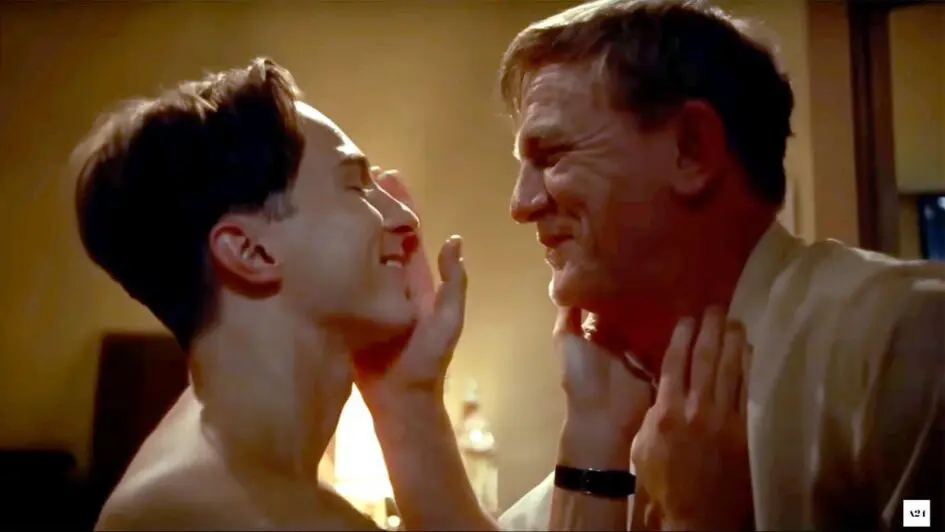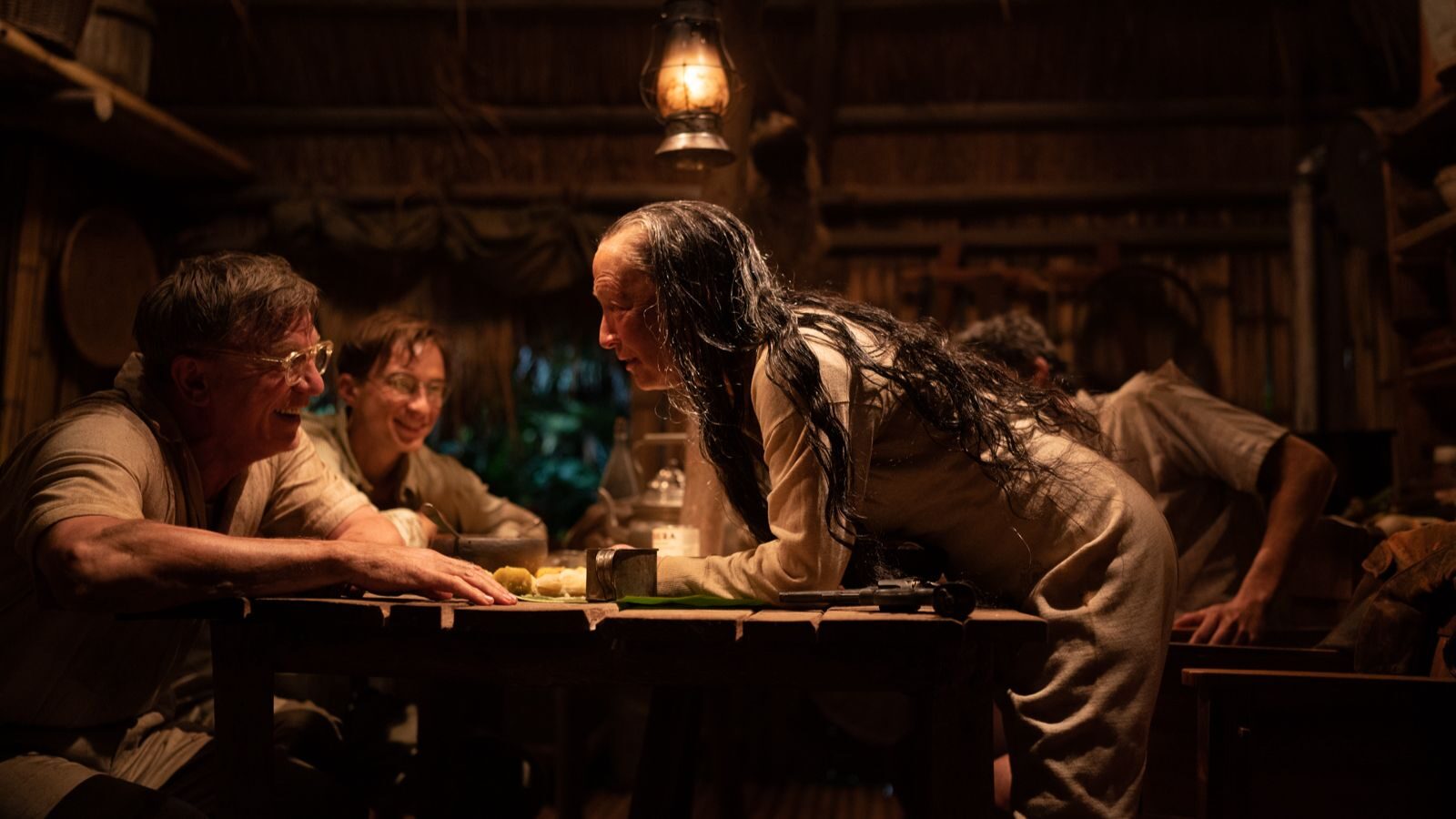Director Luca Guadagnino is a celebrated filmmaker known for his visually stunning and emotionally resonant works. Over the past several years, he has directed several significant films, including Call Me By Your Name (2017), which earned critical acclaim and multiple award nominations for its poignant exploration of first love, Suspiria (2018), a reimagining of the horror classic that delves into themes of identity and power, and Bones and All (2022), a unique coming-of-age romance intertwined with horror elements.
Most recently, Guadagnino embarked on the ambitious project of adapting Queer, a novella by William S. Burroughs, which had captivated him since he first read it at the age of 17 (he is now 53).
While working on the set of his film Challengers (2024), Guadagnino purchased a copy of Queer for screenwriter Justin Kuritzkes. Inspired by the material, Kuritzkes wrote the screenplay for Guadagnino’s adaptation, promising an interpretation that would reflect the depth and intricacy of Burroughs’s original work. This collaboration exhibits their ongoing exploration of themes related to love, desire and the human experience.
A24 distributes Queer, and if you’ve read my columns, you know I approach every A24 movie with caution. Sometimes, they leave me emotionally scarred, or they feel overly artistic. There’s nothing wrong with that; however, as an empath, such a film can negatively affect my day. Well, this one brought me down a little bit.
It may not affect you the same way, but having a warning is helpful, don’t you think?
The movie follows William Lee (Daniel Craig) in 1950s Mexico City. He spends his time in local bars, drinking excessively and pursuing younger men. One day, he encounters Eugene Allerton (Drew Starkey), a G.I. and American expatriate. After some time together and a few advances from Lee, he seduces Eugene, and they form a relationship. Lee becomes obsessed with Eugene, while Eugene remains distant yet consenting to Lee’s advances.
Eventually, they travel to South America, where Lee hopes to find yagé or ayahuasca to develop telepathic abilities. They meet a doctor who lives in the jungle to assist them in their search for yagé, and from there, the story goes bonkers.
The plot’s central theme revolves around the profound loneliness experienced by those different from the rest of society. It delves into the deep yearning for companionship and connection that often accompanies this isolation. Lee is a character with whom many people can sympathize because his situation resonates with the experiences of others: desiring something or someone ultimately unattainable.
Eugene is also relatable; he is lost and uncertain about his wants. There are tender moments between Lee and Eugene that suggest a genuine care for each other. However, I don’t believe that their feelings amounted to love.
Daniel Craig delivers a stunning performance as Lee, showcasing a boldness we’ve never seen from him before. This role is a stark contrast to his portrayal of James Bond. Lee is constantly under the influence of alcohol or drugs, and Craig captures that character’s demeanor and appearance perfectly. You can almost sense the smell of booze, cigarettes and sweat coming through the screen. His charisma is notable, portraying Lee as a carefree individual seeking companionship.
I could see an Oscar nomination for his portrayal.
Drew Starkey took on the role of Eugene with a deliberate approach emphasizing a lack of personality. This portrayal effectively contributed to the overall tone of the character, and in that context, Starkey delivered a commendable performance.
On the other hand, Jason Schwartzman’s transformation into Lee’s friend, Joe, was striking; he was almost unrecognizable in the role. Schwartzman’s ability to inject humor into the film provided a much-needed burst of energy, making his character one of the story’s highlights. His performance lightened the mood and enriched the narrative, positioning him as my second favorite after Craig’s character.
I appreciated the set design in Mexico City; interestingly, much of the movie was filmed in Rome, Italy. Guadagnino envisioned the set’s appearance from the moment he read the book. He aimed for a sense of “heightened artificiality,” which some reviewers criticize, but I find fascinating. He sought a dreamlike quality reminiscent of how we remember our memories and nailed it.
This film marks the third collaboration between director Luca Guadagnino and the talented film composers Trent Reznor and Atticus Ross. Renowned for their unique ability to craft evocative soundscapes, Reznor and Ross excel at creating music that profoundly enhances a film’s emotional undertones. The standout piece in this score is undoubtedly the end credits song, “Vaster Than Empires,” which they composed based on lyrics extracted from the associated novella. Each track is meticulously synchronized with the scenes, contributing to a seamless audiovisual experience.
However, my enjoyment was somewhat marred by including more contemporary songs, mainly “Come As You Are” by Nirvana. While the intention may have been to evoke certain feelings, this choice unfortunately disrupted my immersion in the film, abruptly pulling me out of the narrative’s world.
On a more positive note, I found Sinead O’Connor’s haunting cover of “All Apologies” during the opening credits to be a poignant selection that set an appropriate tone. In hindsight, the film would have benefited from exclusively featuring the original score crafted by Reznor and Ross, as it likely resulted in a more cohesive and impactful viewing experience.
Queer is a film that feels experimental, capturing the unique style often associated with A24 productions. It evokes memories of other films, such as Men and I Saw the TV Glow, from their collection. At times, it’s genuinely bizarre and eccentric. The movie’s dreamlike quality leaves you questioning whether the events occur or are merely products of the characters’ imaginations. As far as interpretations go, one could take many paths to decipher the meaning of the ending. I enjoy that, but sometimes, like in the case of Hereditary or Midsommar, the endings made me feel bleak and sad.
Queer is undoubtedly not horror, but the ending did leave me feeling empty. Yet, I suppose there’s a reason for that.
Overall, I would give Queer two and a half out of five stars. While this score may reflect a weak recommendation, I do want to highlight the standout performance by Craig, who brought depth and nuance to their character. Additionally, the film’s score by Reznor and Ross was awe-inspiring; it added an atmospheric quality that enhanced several key scenes.
Despite these merits, my overall experience with the film was underwhelming. I felt like skipping through several scenes, and if I did, I doubt I would have missed anything. I don’t see Queer as a film that I would want to rewatch. It left me feeling dissatisfaction rather than an urge to revisit the themes and performances.

